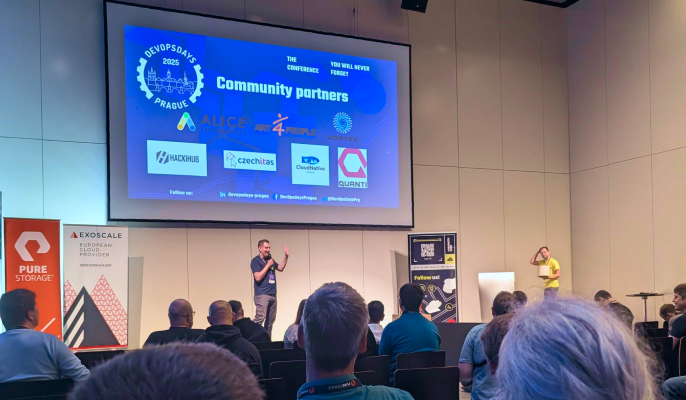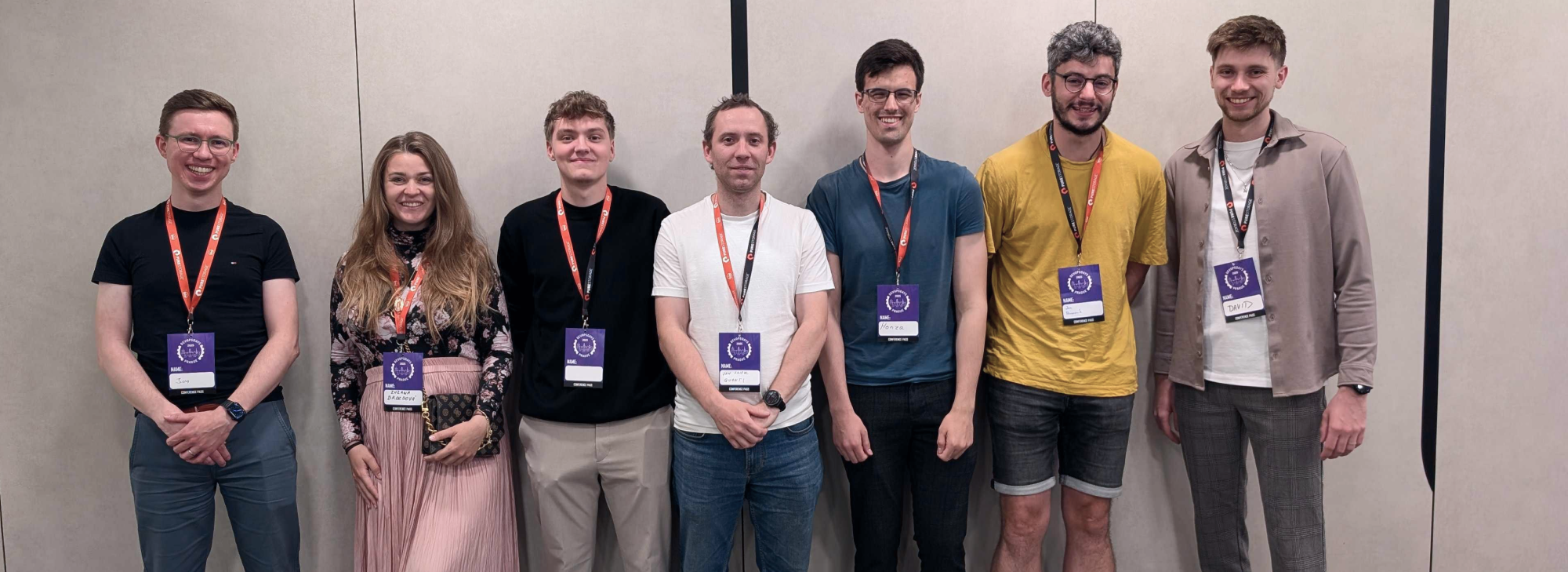DevOps Days is a community conference where technology meets real-world implementation.
This year’s event once again brought together engineers, managers, and enthusiasts to dive into topics like automation, cloud, security, AI, and FinOps.
Our DevOps team from Quanti was right there in the middle of it all.
As sponsors, participants in debates and workshops, and active members of informal networking sessions, we were both seen and heard. We walked away not just with fresh know-how, but with the confidence that our technologies and approaches are keeping pace with current—and even emerging—trends.
What’s Shaping DevOps in 2025
DevOps in 2025 is more mature than ever, yet also more dynamic.
Tools are consolidating, automation is becoming standard, and the focus is increasingly shifting to efficiency, security, and operational sustainability.
Cloud is no longer a question of "if" but "how smart":
- how to optimize costs
- prevent vendor lock-in
- manage complexity.
Kubernetes is now a standard part of production stacks, forming the backbone of modern infrastructure across a wide range of applications.
AI is rewriting the rules, not just in development, but also in operations—helping with monitoring, predictions, and generating infrastructure as code. But it also brings new challenges in governance and trust.
The role of DevOps has never been broader. It's no longer just about managing CI/CD pipelines; it's about being a strategic partner to the entire IT and product organization.
What’s Driving the Community Forward?
AI
Artificial intelligence is no longer just a buzzword.
It streamlines monitoring, predicts incidents, generates code and infrastructure, and automates routine operations. The question now isn’t if you should use AI, but when, how, and where it makes the most sense.
Talks showcased proven strategies—like using AI to keep documentation up to date—and even explored more experimental applications.
Security
Security is now an inseparable part of any DevOps solution from day one.
Presentations often focused on shift-left approaches, CI/CD security testing, key protection, and securing the entire supply chain. One clear takeaway: security can’t just be “done”—it must be integrated into everyday work.
Tools and rules aren’t enough. People need to understand and want to use them. When something is inconvenient or unclear, people find ways around it—creating the biggest risks.
In 2025, security is largely about people—how teams communicate, learn, and understand the why behind specific measures.
Cost Optimization
The cloud is a powerful tool—but without control, it can become expensive fast.
Cost optimization was one of the hottest topics—from tuning instances and efficient scaling to governance and billing alerts.
Even small changes in performance or configuration can save thousands.
FinOps and cost-monitoring tools are very much in vogue.
Kubernetes as a Standard
Kubernetes was everywhere. No longer a novelty, it’s now a foundational element of modern systems architecture. Most talks either focused on it directly or touched on it in some way—from both operational and development perspectives. The community is now exploring advanced scenarios like GitOps, service mesh, multi-cluster architectures, and deeper integration with cloud-native tools.
What Did We Take Away?
We’re on the right path. Our DevOps team is AWS certified, works with the latest methods, and leverages experience from diverse projects to help clients balance cutting-edge tech with a healthy budget.
AI is a major theme. While we already use it regularly, the conference gave us fresh inspiration on how to harness generative AI even more effectively for automation, documentation, and prediction within DevOps pipelines.
We shared know-how and experiences. During networking, we exchanged tips with folks from 2N and other companies—talking about monitoring, pipelines, and troubleshooting stories. This kind of open sharing is what makes the DevOps community unique and irreplaceable.
Curious how DevOps can benefit your project?
Get in touch! We’d love to chat and propose a solution tailored to your needs—no strings attached.


.svg)






